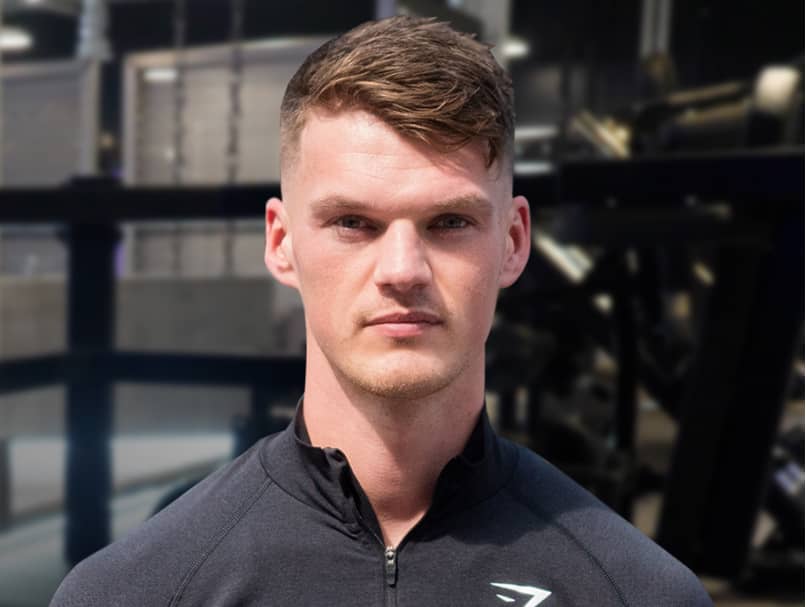
Ben Francis founded Gymshark, now a $1 billion fitnesswear brand, when he was just 19 years old. In 2015, he stepped down as CEO in what he described as a heartbreaking decision.
Now he’s back at the helm, and spoke to CNBC about why he feels his original decision to step back was best for the company.
“CEO was not the right role for me when I was in my early twenties,” the founder, now 29, told CNBC Make It, a week after he returned to the role in August.
“Just because I’d started a business that had grown very quickly didn’t mean I was the most competent chief exec.”
Online fitnesswear and accessories brand Gymshark has seen rapid growth since Francis created the first iteration of the website as a college student just a decade ago. Its turnover has grown tenfold over the last four years, rising to £400 million ($550 million) this year, according the company’s latest full-year financial results in July.
Gymshark has also nearly doubled its number of employees in the last 12 months alone, up to over 800 members of staff.
Francis stepped back as CEO six years ago, handing the reins to then-managing director Steve Hewitt, a former director at Reebok.
Francis felt he “wasn’t the best person for job” in the early years of business, but said the decision was still “little bit heartbreaking.”
In hindsight, he said stepping back actually gave him an “incredible opportunity” to try his hand working in different areas of the business. Francis has spent the last six years rotating through a number of roles, including chief technology officer, chief marketing officer and chief product officer.
He said this has given him time to both work on his weaknesses and build on his strengths “without having to worry about failing,” because he had the full support of Hewitt and Chairman Paul Richardson.
Francis likened it to “being able to do an exam and just do it as often as you want until you get the result that you want,” and said the decision to temporarily step back as CEO ultimately “turbo-charged” his development as a business leader.
The UK’s answer to Nike
Despite being just two weeks back on the job, Francis has ambitious plans for the business.
He said he liked how different countries have their own big-name sportswear brands, such as Lululemon in Canada, Nike and Under Armour in the U.S., as well as Adidas and Puma in Germany.
“I really think Gymshark can be the U.K.’s answer to those brands,” he said. “But that’s not saying that the U.K. is where it starts and ends for us, we also want to be a truly global brand.”
Francis said he has also been also inspired by other brands, like carmaker Jaguar Land Rover.
“I know that they’re a British brand and they’re from just over the road from where I grew up, but it’s so cool when you’re abroad that … you see their vehicles being driven around,” he said.
Francis has stayed close to his roots in the U.K.’s West Midlands, with Gymshark headquartered in Solihull, just outside of Birmingham. The Gymshark offices now consist of a campus, complete with its own lifting club and gym for employees.
It’s an impressive leap from where Francis started out making the brand’s first pieces of fitnesswear in his parent’s garage nearly a decade ago.
The origins of Gymshark
It was while doing work experience as a teenager for his grandad, who ran a furnace lining company, that Francis decided he also wanted to start his own business.
An information technology class at school then sparked Francis’ passion for building websites and apps. At the same time, Francis had also developed an interest in fitness.
“So then those two things just sort of came together and I started making a load of fitness websites, more for fun than anything,” he explained.
It was in 2011, as a 19-year-old student at Birmingham’s Aston University, that Francis then created the first version of the Gymshark website.
He incorporated the business with schoolfriend, Lewis Morgan, in 2012. Keen to work in the fitness industry, the pair initially used the Gymshark website to “dropship” fitness supplements. Drop shipping is when a business takes customer orders, but doesn’t actually keep the products in stock.
It means they effectively acted as middlemen to market and sell the products, without having to take on the additional cost and risk of buying stock themselves.
They used the money earned from dropshipping, as well as what Francis had earned working as a deliveryman for Pizza Hut, to buy a sewing machine and screen printer to start making their own fitnesswear.
Check out: 32-year-old founders of multimillion-dollar app share their No. 1 tip for starting a business




